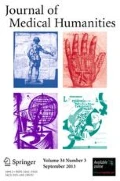Abstract
Reproductive techniques and practices, ranging from ordinary birth-control measures and artificial insemination to embryo transfer and surrogate motherhood, have greatly enhanced our range of reproductive choices. As a consequence, they pose a number of difficult moral and legal questions with regard to the formation of a family and our conception of parenthood. A view that is becoming increasingly common is that parental rights and responsibilities should not be based on genetic relationships but should instead be seen as arising from agreements or contracts between individuals. Accordingly, a man who consents to his wife's artificial insemination by donor (AID) and not the sperm donor, is the legal father of the child; in surrogacy agreements, the “intending mother,” and not the surrogate, has the right to raise the resulting child. While agreeing that biology should not form the basis for assigning legal parenthood, I argue that the theory of intentional parenthood, despite being put forward as a liberal theory, is geared toward or will have the function of protecting the nuclear family and inhibiting the formation of alternative family forms.
Similar content being viewed by others
REFERENCES
Hill, J. L. (1990). The case for enforcement of the surrogate contract. Politics and the Life Sciences, 8(2), 147–160.
Merrick, J. C. (1990). Selling reproductive rights: Policy issues in surrogate motherhood. Politics and the Life sciences, 8(2), 161–172.
Michael H. v. Gerald D, 491 U.S. 110 (1989).
Polikoff, N. D. (1990). This child does have two mothers: Redefining parenthood to meet the needs of children in lesbian-mother and other nontraditional families. The Georgetown Law Journal, 78, 459–575.
Ragoné, H. (1994). Surrogate motherhood: Conception in the heart. Boulder, CO: Westview Press.
Shanley, M. L. (1995). Fathers’ rights, mothers’ wrongs? Reflections on unwed fathers’ rights and sex equality. Hypatia, 10(1), 74–103.
Shevory, T. C. (1990). Rethinking public and private life via the surrogacy contract. Politics and the Life Sciences, 8(2), 173–184.
Shultz, M. M. (1990). Reproductive technology and intent-based parenthood:Anopportunity for gender neutrality. Wisconsin Law Review, 2, 279–398.
Author information
Authors and Affiliations
Corresponding author
Rights and permissions
About this article
Cite this article
van Zyl, L. Intentional Parenthood and the Nuclear Family. Journal of Medical Humanities 23, 107–118 (2002). https://doi.org/10.1023/A:1014842031013
Issue Date:
DOI: https://doi.org/10.1023/A:1014842031013




